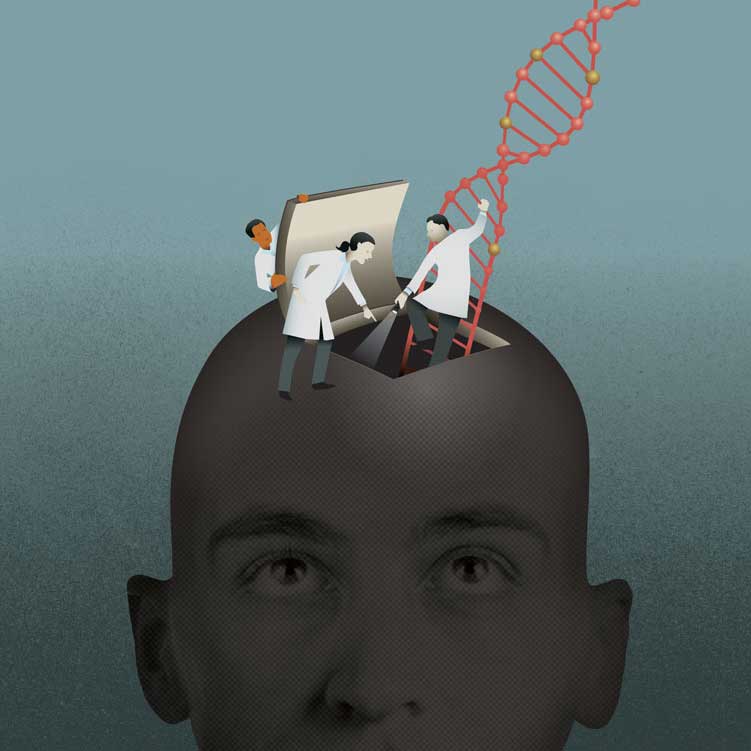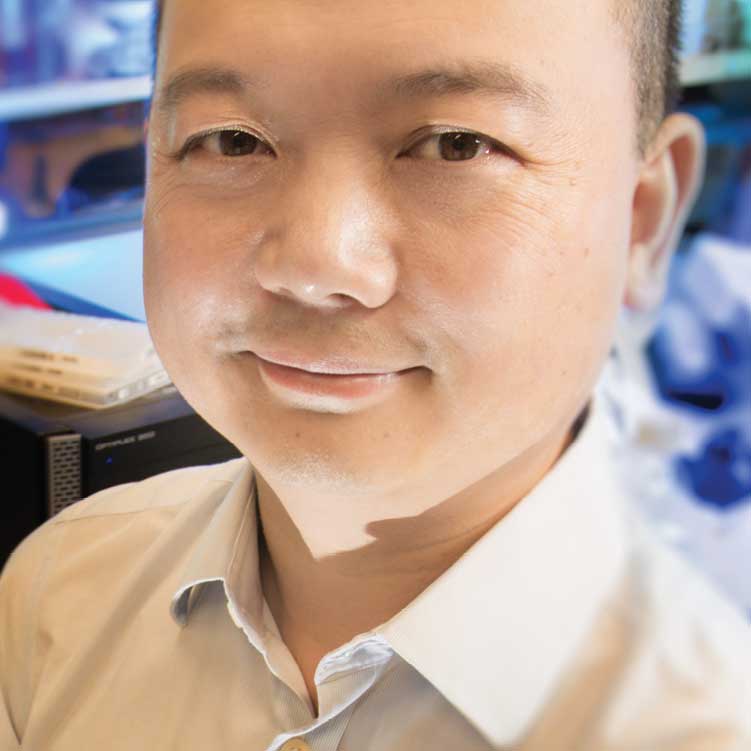Salk Professor Reuben Shaw’s lab revealed how a cellular “fuel gauge” responsible for managing energy processes—a protein complex called AMPK—has an unexpected role in development. The work was published March 2016 in Genes & Development.
Shaw, first author Nathan Young and colleagues discovered that embryonic stem cells without a functioning AMPK pathway don’t execute the development process properly, creating more of one germ layer than another. This lapse turns out to be due to a loss of lysosomes, structures responsible for degrading and reusing cellular components. By turning on lysosomal genes, the team was able to restore normal development in the AMPK-deficient cells.
According to Shaw, the connection between AMPK and lysosomes reveals more about cellular growth and metabolism.
Currently, lysosome inhibitors are in dozens of clinical trials for certain cancers, even though the exact link between lysosomes and tumors is not understood. “We are decoding underlying connections that might indicate when and how cancer drugs might be useful,” says Shaw. “This work may help us make better, more specific ways of targeting lysosomes in cancer.”
Featured Stories
 Beyond DNA: Unlocking the Secrets of the EpigenomeA layer of regulatory information on top of DNA is proving to be as important as genes for development, health and sickness.
Beyond DNA: Unlocking the Secrets of the EpigenomeA layer of regulatory information on top of DNA is proving to be as important as genes for development, health and sickness. Tapping our Immune System’s SuperpowerWe all have a superhero—or supervillian—inside our bodies. It’s called our immune system. Every day, a healthy immune system repels a host of adversaries—bacteria, viruses, parasites—you name it!
Tapping our Immune System’s SuperpowerWe all have a superhero—or supervillian—inside our bodies. It’s called our immune system. Every day, a healthy immune system repels a host of adversaries—bacteria, viruses, parasites—you name it! All about town with Pablo HollsteinGrowing up in Quito, Ecuador, Pablo Hollstein was passionate—and precise —about science from an early age.
All about town with Pablo HollsteinGrowing up in Quito, Ecuador, Pablo Hollstein was passionate—and precise —about science from an early age.



















































